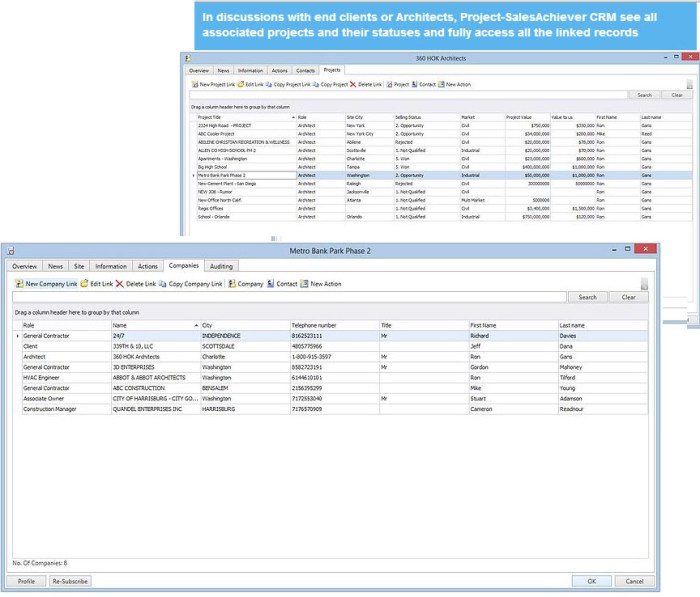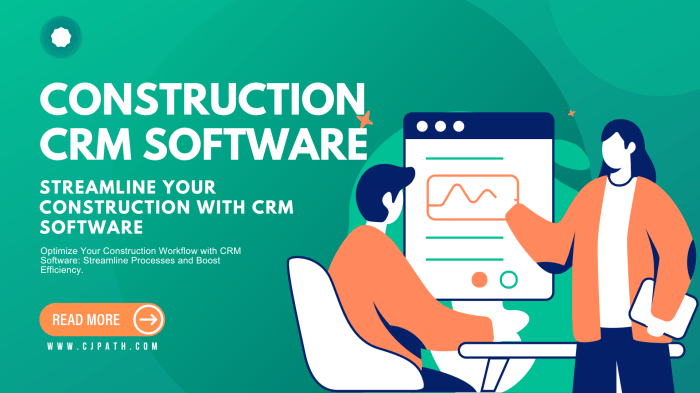Crm software for contractors – In the competitive landscape of the contracting industry, efficiency and organization are paramount. Managing leads, projects, client communication, and invoicing can quickly become overwhelming without the right tools. This is where Customer Relationship Management (CRM) software steps in, offering a centralized hub to streamline your operations and boost your bottom line. This detailed guide explores the benefits of CRM software specifically designed for contractors, highlighting key features, selection criteria, and best practices.

Source: 1webgini.com
Why Contractors Need CRM Software
Contractors, whether specializing in construction, plumbing, electrical work, or other trades, face unique challenges. Juggling multiple projects, managing diverse teams, and maintaining strong client relationships requires exceptional organizational skills. CRM software provides a solution by:
- Centralizing Client Information: Store all client details – contact information, project history, communication logs, and payment information – in one easily accessible location.
- Improving Project Management: Track project timelines, milestones, and budgets effectively. Assign tasks, monitor progress, and identify potential delays proactively.
- Boosting Communication: Streamline communication with clients and team members through integrated email, messaging, and scheduling features.
- Automating Tasks: Automate repetitive tasks such as sending proposals, invoices, and follow-up emails, freeing up valuable time for more strategic activities.
- Enhancing Reporting and Analytics: Gain valuable insights into business performance through customizable reports and dashboards, tracking key metrics such as revenue, profitability, and project completion rates.
- Improving Customer Satisfaction: By providing excellent service and timely communication, CRM software helps build stronger client relationships and fosters repeat business.
Key Features of CRM Software for Contractors
While the core functionalities remain similar across various CRM systems, contractors should look for specific features tailored to their industry needs:
Project Management Capabilities:
- Task Management: Assign tasks to team members, set deadlines, and track progress.
- Timeline Visualization: Gantt charts or similar tools to visualize project timelines and dependencies.
- Budget Tracking: Monitor project costs against budgets and identify potential overruns.
- Document Management: Store and share project-related documents securely.
- Progress Reporting: Generate automated progress reports for clients and internal stakeholders.
Client Relationship Management Features:
- Contact Management: Store comprehensive client information, including contact details, communication history, and project history.
- Lead Management: Track leads from initial contact to conversion, ensuring no opportunity is missed.
- Communication Tools: Integrated email, phone, and messaging capabilities for seamless communication.
- Customer Support Ticketing: Efficiently manage and resolve client inquiries and issues.
- Customer Feedback Collection: Gather feedback to improve service and identify areas for improvement.
Financial Management Tools:, Crm software for contractors
- Invoicing and Payment Processing: Generate professional invoices and track payments efficiently.
- Expense Tracking: Record and categorize expenses related to projects.
- Reporting and Analytics: Generate financial reports to monitor profitability and identify trends.
- Integration with Accounting Software: Seamlessly integrate with existing accounting software for streamlined financial management.
Choosing the Right CRM Software for Your Contracting Business
Selecting the appropriate CRM software requires careful consideration of your specific needs and budget. Here are some key factors to consider:
- Scalability: Choose a system that can grow with your business as you expand.
- Integration Capabilities: Ensure the CRM integrates with other essential tools, such as accounting software, project management platforms, and communication tools.
- User-Friendliness: Opt for a system that is intuitive and easy to use for your team, even those less tech-savvy.
- Mobile Accessibility: Access your CRM data anytime, anywhere, from your mobile device.
- Customer Support: Choose a provider that offers reliable customer support and training.
- Pricing and Features: Carefully evaluate the pricing model and ensure the features align with your needs and budget.
Popular CRM Software Options for Contractors
Several CRM platforms offer features specifically designed for contractors. Some popular choices include:
- Zoho CRM: A comprehensive and affordable option with strong project management capabilities.
- HubSpot CRM: A popular choice for its user-friendly interface and robust marketing automation features.
- Salesforce: A powerful and scalable platform, ideal for larger contracting businesses.
- Freshworks CRM: Known for its intuitive interface and excellent customer support.
- JobNimbus: A CRM specifically designed for the home service industry, including contractors.
It’s recommended to try out free trials or demos of different platforms before making a final decision.
Implementing and Optimizing Your CRM System
Successfully implementing a CRM system requires careful planning and execution. Here are some best practices:
- Data Migration: Carefully plan and execute the migration of existing client and project data into the new system.
- User Training: Provide comprehensive training to your team on how to use the CRM effectively.
- Process Standardization: Establish clear processes for using the CRM to ensure consistency and efficiency.
- Regular Monitoring and Optimization: Continuously monitor the system’s performance and make adjustments as needed.
- Data Security: Implement robust security measures to protect sensitive client and project data.
Frequently Asked Questions (FAQ)
- Q: How much does CRM software for contractors cost? A: Pricing varies widely depending on the platform, features, and number of users. Some offer free plans for basic functionality, while others charge monthly or annual subscriptions based on usage.
- Q: Is CRM software difficult to learn? A: Most modern CRM platforms are designed to be user-friendly, with intuitive interfaces and helpful tutorials. However, some initial training may be required.
- Q: Can CRM software integrate with my existing accounting software? A: Many CRM platforms offer integration capabilities with popular accounting software, such as QuickBooks and Xero. Check the specific platform’s integration options before making a decision.
- Q: How long does it take to implement a CRM system? A: Implementation time varies depending on the size of your business, the complexity of the system, and the amount of data migration required. It can range from a few weeks to several months.
- Q: What are the key benefits of using a CRM for my contracting business? A: Key benefits include improved client communication, enhanced project management, increased efficiency, better organization, and improved profitability.
Conclusion
Investing in the right CRM software is a crucial step for any contractor seeking to improve efficiency, enhance client relationships, and grow their business. By carefully considering your specific needs and selecting a platform with the appropriate features, you can transform your operations and achieve greater success.
References: Crm Software For Contractors
Call to Action
Ready to streamline your contracting business? Explore the CRM options mentioned above and choose the one that best fits your needs. Start your free trial today and experience the difference!
Commonly Asked Questions
What types of CRM software are best suited for contractors?
Cloud-based CRMs offering mobile accessibility and project management features are generally preferred. Look for systems with customizable fields to cater to specific contracting needs.
How much does CRM software for contractors typically cost?
Pricing varies greatly depending on the features, number of users, and vendor. Expect a range from free plans with limited functionality to several hundred dollars per month for comprehensive solutions.
What are the key features to look for in a contractor CRM?
Essential features include contact management, project management tools, lead tracking, reporting and analytics, and ideally, integration with other business tools.

Source: cjpath.com
How long does it take to implement a CRM system?
Implementation time varies based on the complexity of the system and the size of the business. Expect a few weeks to a few months for a full implementation and training.
